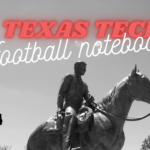 Just to catch everyone up in a sentence, Texas and Oklahoma asked the join the SEC and the SEC said that they’re def interested.
Just to catch everyone up in a sentence, Texas and Oklahoma asked the join the SEC and the SEC said that they’re def interested.
 I wasn’t sure what my thoughts would be today, but the more I think about this the more I think about that realignment is like a game of Risk, the board game where you try to acquire land and eventually take over the world.
I wasn’t sure what my thoughts would be today, but the more I think about this the more I think about that realignment is like a game of Risk, the board game where you try to acquire land and eventually take over the world.
That’s conference realignment to me. With the SEC’s move to add Texas and Oklahoma, they’ve essentially controlled a continent and now everyone is looking at the ACC, Pac-12, and Big Ten to see if they’ll do anything else as well. The thing about Risk is that there’s a limited number of places to control and sometimes you might try to occupy parts of the map so that you opponent doesn’t.
That line of thinking bodes well for Texas Tech and Oklahoma State with the Pac-12, but I don’t know that the Pac-12 thinks that they are playing a game of Risk. I hope that they are.
 Slate’s Alex Kirshner writes that the departure of Texas and Oklahoma is the height of pointless extravagance:
Slate’s Alex Kirshner writes that the departure of Texas and Oklahoma is the height of pointless extravagance:
What Oklahoma, Texas, and the rest of the SEC get out of this is clear: marginal improvements to their cash flows, and for the Sooners, a chance to get a four-touchdown loss to the SEC’s best team out of the way before the College Football Playoff. The rest of college sports, on the other hand, only gets instability and further regionalization. College sports deserves instability on many issues—its player compensation model, for instance—but the sort of shakiness this move will bring will not help anyone. By further concentrating power in the South, it will further regionalize a sport that hasn’t felt truly national since USC was building a mini-dynasty in the mid-aughts. The Big 12—a league that has never won a playoff game and has only had one team (Oklahoma) appear in the event—will be irrelevant to wide swaths of casual fans. There will be increasingly little reason for new fans outside the South, Midwest, and parts of the Atlantic coastline to fall in love with the sport. This, again, is not Texas’ or Oklahoma’s problem, but it doesn’t mean anyone else should be happy about the effect.
There’s nothing inherently special about the status quo, and the current Big 12 is not all that worth missing, at least as a football property. For one thing, it has not been around long, and for another, it has gotten a bit stale in the only sport that drives realignment decisions at this level: football. A couple of participants in the league’s best old series (Colorado and Nebraska) have already left, and it’s not like college football needs Oklahoma to keep anticlimactically beating Oklahoma State every single year in the weirdly named “Bedlam” rivalry game.
But the Texas and Oklahoma departure will filter down and threaten the good stories that do emerge from the league’s lower and middle class. Take Iowa State, a historic doormat that made a smart coaching hire a few years ago in Toledo’s Matt Campbell and just won the Fiesta Bowl to cap its greatest season ever. The Cyclones have so far been able to hang onto Campbell despite it being an open secret that some of the sport’s biggest brands would love to hire him. That resistance may not hold when the Big 12’s leftovers are relegated to something less than the status of a full power. However the realignment chips fall, numerous schools will find themselves in similar situations.
Yeah. This.
I mentioned in the Slack channel, that Texas’ and Oklahoma’s boasts that they’ve driven the Big 12 and I think this is self-gratification at its finest. it takes two to tango and without the teams and fans that know each other, it’s just maybe not the same? I don’t know, I’m probably naïve.
I’ve not really understood why Oklahoma wants to go, a near-guaranteed spot in the playoffs each seems like a good deal and the likelihood that it will be that easy moving forward might not be accurate. We’ll see.
 Yahoo Sports’ Pete Thamel writes about how Texas’ dominance to essentially control the Big 12 Conference and shitting the bed by not being able to capitalize on highly ranked recruiting classes and their own network will now just stand in line like the rest of the SEC members:
Yahoo Sports’ Pete Thamel writes about how Texas’ dominance to essentially control the Big 12 Conference and shitting the bed by not being able to capitalize on highly ranked recruiting classes and their own network will now just stand in line like the rest of the SEC members:
In the past two decades, Texas flexed its institutional ego as relentlessly and destructively as any athletic department in college sports. The Longhorns’ insistence on the Longhorn Network and superiority complex sent Colorado, Nebraska, Missouri and their old rivals, Texas A&M, scurrying for other leagues. Texas also prevented Texas Tech, Oklahoma State and Oklahoma from joining the Pac-10 with them by trying to jam the Longhorn Network down the conference’s throat at the 11th hour.
Texas was the Big 12’s bully, and it constantly reminded everyone of it. Essentially, Texas’ belief in its imminent football dominance was so big that it felt like it could carry a league no matter who was in it. Even when the on-field results stopped dictating that.
And that’s the most remarkable part of Texas going to the SEC, as the Longhorns are essentially admitting what’s been glaringly apparent on the field over the past decade — they’re not special. Texas’ move to the SEC is an admission that it’s just like everyone else, something the school’s 52-46 conference record the past 11 years and “TEXAS IS BACK” punch lines have indicated.
“This is who they are,” said one long-time Big 12 official. “They’re going to be fighting for sixth or seventh place in the SEC.”
The Longhorns react to a game-winning field goal as time expired vs. Kansas State in 2019 at Darrell K Royal-Texas Memorial Stadium. (Photo by John Rivera/Icon Sportswire via Getty Images)
Since Texas can’t win with consistency, it’s joining a league that better positions it to do so. This isn’t really about money for Texas, who led college athletics with more than $200 million in revenue prior to the pandemic.The most fascinating part to those who’ve felt Texas’ boardroom blunt force is the notion that Texas is giving up the right to bully a league, dictate direction and operate like oligarchs. The notion of Texas standing in line and waiting its turn is gleeful to folks who’ve been on the business end of Texas’ domineering style in the Big 12.
 When we talk about supporting the program through thick and thin, it is times like these where that’s incredibly important. This is a delicate subject and one where you don’t want to support a program that’s not producing wins, but I’ve never felt that way. I’ll still watch and still support the program and still go to games because I like to do that. The older I’ve gotten the less I take losses home with me after games. And I completely understand those of you who don’t, but long-term, people not showing up could have potentially grave consequences (grave is probably too strong of a word, but you get the point) to the program and relegation from a Power 5 conference is a reality. The only thing I’d say is that I believe that if you showed up for every game and watched every game, the powers that be will fire a coach if they don’t win because they most likely believe the same as you, their leash is just likely a bit longer than yours. It’s not always fun being there, trust me, being on this end of having to write a thousand words on a blowout loss isn’t fun, but it’s that’s what we do.
When we talk about supporting the program through thick and thin, it is times like these where that’s incredibly important. This is a delicate subject and one where you don’t want to support a program that’s not producing wins, but I’ve never felt that way. I’ll still watch and still support the program and still go to games because I like to do that. The older I’ve gotten the less I take losses home with me after games. And I completely understand those of you who don’t, but long-term, people not showing up could have potentially grave consequences (grave is probably too strong of a word, but you get the point) to the program and relegation from a Power 5 conference is a reality. The only thing I’d say is that I believe that if you showed up for every game and watched every game, the powers that be will fire a coach if they don’t win because they most likely believe the same as you, their leash is just likely a bit longer than yours. It’s not always fun being there, trust me, being on this end of having to write a thousand words on a blowout loss isn’t fun, but it’s that’s what we do.
𝙀𝙖𝙧𝙣 𝙞𝙩 pic.twitter.com/mzSwMbpmGQ
— Texas Tech Football (@TexasTechFB) July 24, 2021
216lbs~228lbs in 5 months. Stayed same body fat percentage at 14%. Let’s keep going @coachscholz 👆🏼 pic.twitter.com/42uTSJ99sf
— Tyler Shough (@tylershough2) July 28, 2021
This Dude has Been Working the Plan Since He Stepped on Campus. Same Weight and Bodyfat Down Almost 7% @JesiahPierre #WreckEm 🔴⚫️ pic.twitter.com/JP89kdXASI
— David Scholz (@coachscholz) July 28, 2021









